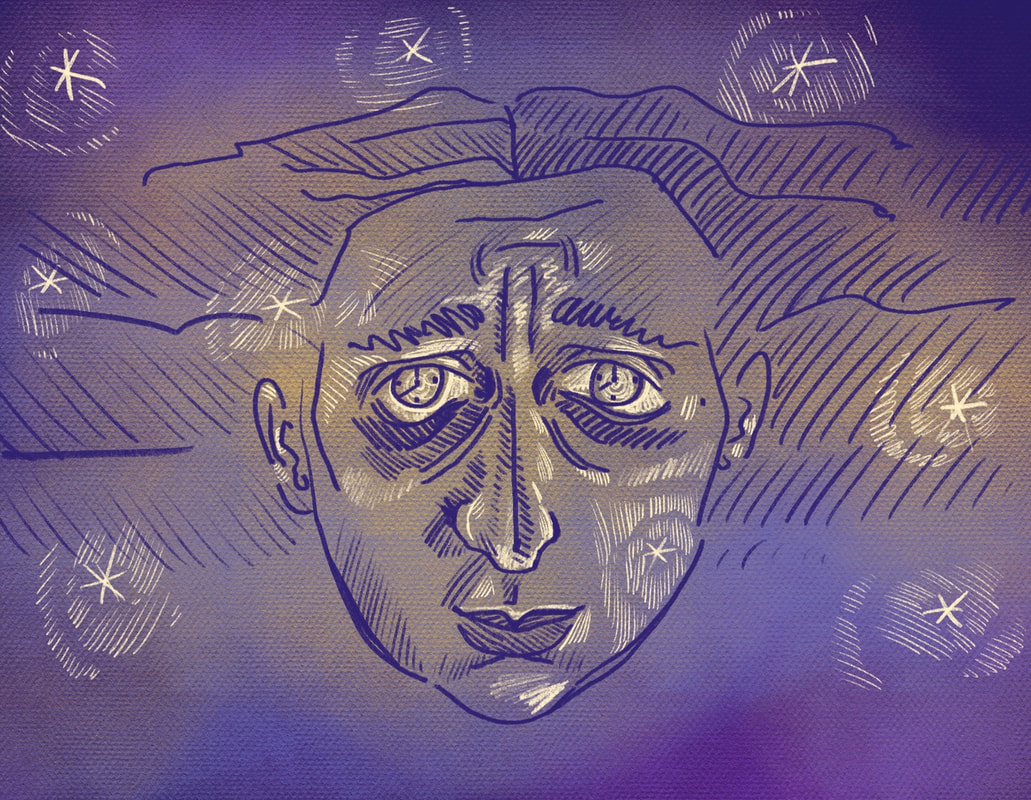|
By Elaine Zhu Illustration by Lizka Vaintrob For the average college student, each week seems to be a battle in trying to balance a boatload of classes, homework, a social life, and other extracurricular activities. With the amount of activities students need to manage, it is no surprise that according to an assessment completed by the American College Health Association, 63% of college students felt overwhelming anxiety in 2018. This trend does not end after college either—there are some 40 million adults in the United States who have an anxiety disorder. Along with these responsibilities, sleeping the full, recommended eight hours a night is also something that is essential to a student’s schedule. However, the Center for Disease Control estimates that at least 35% of adults, including college students, are also not getting enough sleep at night. Research has shown that a lack of sleep and anxiety disorders often go hand in hand. Sleep disruption is linked with the development of anxiety disorders and is also present in post-traumatic stress disorder, panic disorder, and social anxiety disorder. A recent study conducted by researchers at the University of California, Berkeley showed a strong neural link between sleep and anxiety. This study, published recently in Nature Human Behavior, found a strong relationship between particular areas in the brain and anxiety from sleep disturbances. Their results also demonstrated that non-rapid eye movement or slow-wave sleep actually has an anxiolytic effect, something that reduces anxiety in the brain and in the body. The researchers aimed to answer three questions:
In order to answer these questions, the researchers conducted experiments using functional MRI and polysomnography, which records brain wave activity, oxygen levels in the blood, heart rate, and breathing. They asked adults to view emotional video clips and then scanned their brains using functional MRI, once after a full night of sleep and then again after one night without sleep. They measured each individual’s anxiety level after each night with a questionnaire and used the functional MRI results to show the most active areas of the brain while the test subjects were watching the video clips. After scanning each subject’s brain, the results signified that after the sleep-deprived night, the experimentees did not display much activity in the medial prefrontal cortex, which is typically associated with keeping anxiety under control. Furthermore, after the night with sleep deprivation, 50% of the test subjects conveyed anxiety levels that exceeded the clinical threshold for anxiety disorders. One of the researchers, Matthew Walker PhD, stated, “Without sleep, it’s almost as if the brain is too heavy on the emotional accelerator pedal, without enough brake.” The researchers also found that after the night with undisturbed sleep, the subjects’ anxiety levels dropped significantly. This drop correlated with more slow-wave or non-rapid eye movement (NREM) sleep, which is a sleep stage when blood pressure is typically low and breathing and heart rates are slower and more regular. These results point to NREM sleep being an anxiolytic, or something that can reduce anxiety. Researchers also found that subtle changes or reductions in sleep can increase anxiety levels. Their results showed that varying quality in sleep from one night to the next can negatively impact anxiety and can increase the elevation of anxiety in the following day. This finding also builds upon previous research that shows lower sleep efficiency in people with an anxiety disorder. Previous research has also demonstrated a link in the opposite direction—anxiety disorders can also affect sleep and cause sleep deprivation, creating a cycle of increasing anxiety and sleep deprivation. As new findings emerge on the relationship between sleep and anxiety, it’s important that society emphasizes these results to students and adults. If people do not recognize the importance of sleep, it will only be harder to reduce the prevalence of anxiety in adults today.
0 Comments
Leave a Reply. |
Categories
All
Archives
April 2024
|

